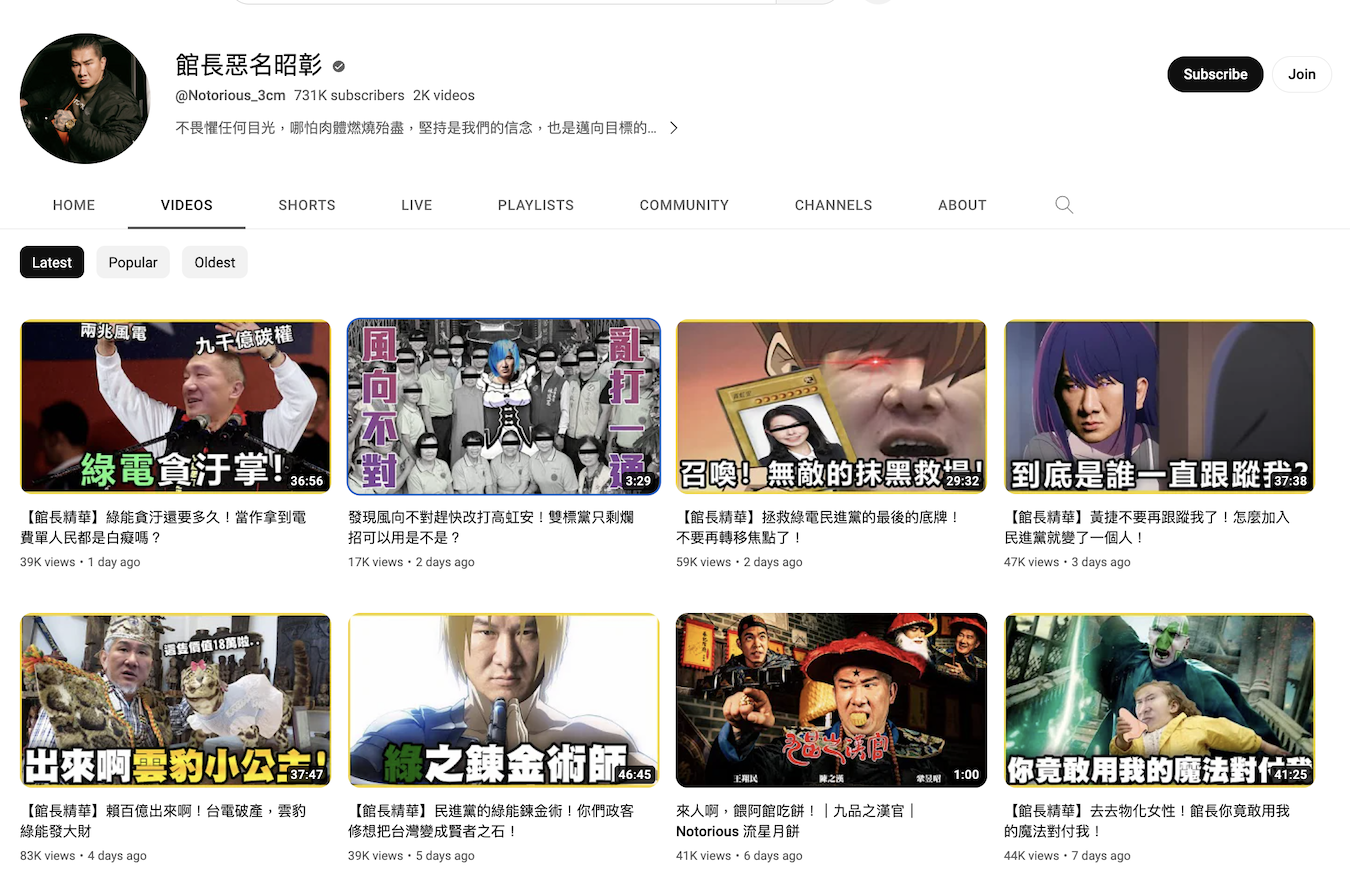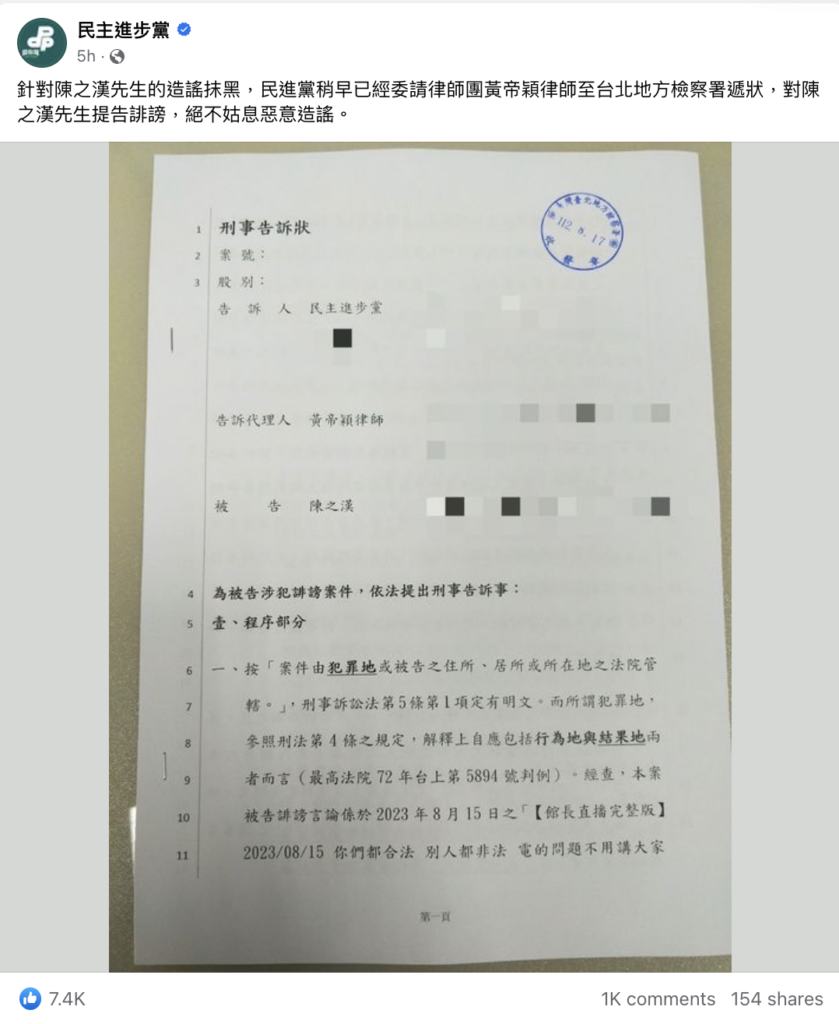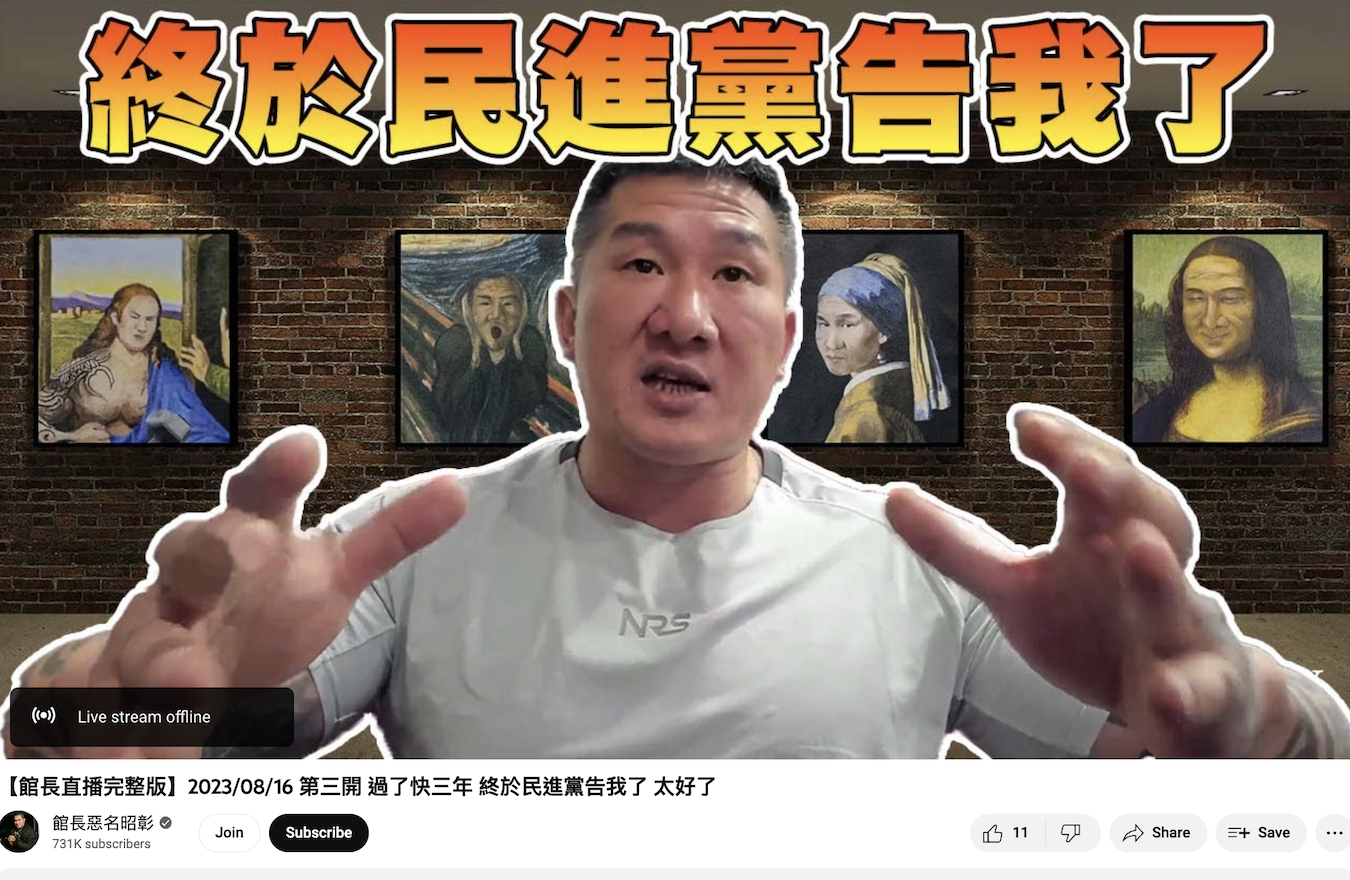by Brian Hioe
語言:
English
Photo Credit: Screenshot
POLITICAL STREAMER and Internet celebrity Holger Chen raised eyebrows earlier this week by accusing the DPP of being behind a shooting incident in August 2020 in which he was shot by a gunman.
Chen was shot in the arm and leg during the shooting incident, during which he was live-streaming. The shooting took place outside of the gym run by Chen, who is known as a bodybuilder.
It was originally thought that the shooting could have occurred because of financial disputes related to Chen’s gym. Nevertheless, it eventually emerged that Chen’s two assailants, including the gunman, were members of the Bamboo Union gang.
 Screenshot of Chen’s YouTube channel
Screenshot of Chen’s YouTube channel
The Bamboo Union gang is one of Taiwan’s major triad groups. In particular, the Bamboo Union is generally seen as pro-unification. The China Unification Promotion Party’s (CUPP) head, Chang An-le, was previously reputed to be the leader of the Bamboo Union gang. While Chang conducted political assassinations for the KMT during the authoritarian period, since democratization and returning to Taiwan after a lengthy time spent in jail in the US, Chang has reinvented himself as a pro-unification politician.
Nevertheless, the CUPP and Bamboo Union gang have continued to be implicated in violent crime. Likewise, both groups have been accused of connections to the Chinese state. Members of the Bamboo Union gang were implicated in attacks on Hong Kong activist Joshua Wong and fellow members of his Demosisto political party during visits to Taiwan.
According to police, Chen’s shooting resulted from a hit placed on him. It is generally thought that this was retaliation for Chen’s outspoken criticisms of pro-China business interests in Taiwan, as well as of the CUPP and Bamboo Union gang.
But in recent times, Chen has shifted his political orientation toward alignment with Ko Wen-je and his pan-Blue TPP. This is not the first political shift by Chen either, seeing as Chen was originally a figure affiliated with the pan-Blue camp, but in past years, he became increasingly critical of what he framed as the KMT caving into pro-China business interests.
It proves strange, then, that Chen has accused the DPP of being behind the attacks. It is unlikely, after all, for the DPP to work with the pro-unification CUPP or Bamboo Union gang. Consequently, Chen has been accused of trying to recast his own assassination attempt in order to justify his re-pivot toward the pan-Blue camp.
Chen specifically named DPP legislators Chen Ming-wen, Yu Tien, and others as part of his claims. In particular, pan-Blue opponents have increasingly accused the DPP of links to organized crime.

Facebook post by the DPP about a libel lawsuit filed by the party against Chen in the wake of his accusations
Indeed, it is probably the case that some DPP politicians have, in fact, become linked to organized crime. This would be part of the larger spectrum of issues involving political corruption facing the DPP, in which local politicians became linked to vested political and business interests that can include organized crime. At the same time, given that the KMT has long had ties to organized crime groups by way of “Black Gold” corruption dating back to the authoritarian period, the KMT would also be aiming to accuse the DPP of actions similar to its own.
It is expected that the pan-Blue camp will increasingly lean into such attacks ahead of the 2024 elections. Accusations of corruption and links to organized crime are increasingly drawn on by the pan-Blue camp to attack the DPP.
As for Chen, Chen has been criticized for efforts to defend Ko in a manner that reverses course from his previous stances, or which come across as slavish. Chen, for example, attempted to defend Ko from criticisms of objectifying women after a campaign event featured female dancers in sexualized flight attendant uniforms. Chen’s response was to attack DPP legislator Lai Pin-yu, a famed cosplayer, as an example of the DPP also objectifying women, comments that led Chen to be criticized for further demonstrating misogyny and chauvinism.



